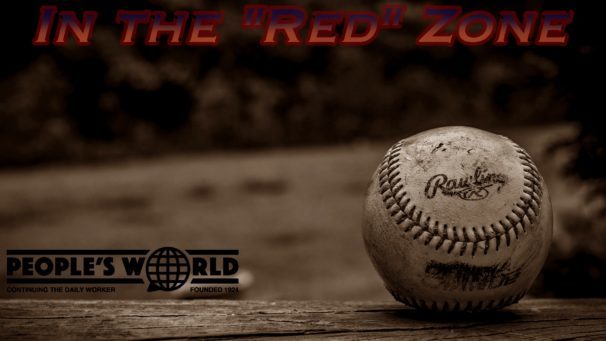
I’ve said it all along and will continue to—even if still questioned by most—sports in the U.S. have always been political. You can’t separate them. If you did, you’d be doing a disservice to our political, legal, and radical history.
Of course, in our current political climate, folks might have a lot to say when it comes to activist athletes. And that’s not a bad thing. Forcing ourselves and others to face systemic oppression directly makes it harder to sweep it under the rug, like we’ve done for decades.
My question to those family members, friends, and co-workers who fall on the MAGA side of things—the whole “law and order” bit—is: Do you still support “law and order” when it inadvertently bolsters the fight against Trump’s administration?
“The powers not delegated to the United States by the Constitution, nor prohibited by it to the States, are reserved to the States respectively, or to the people.” – Tenth Amendment
The U.S. Supreme Court traditionally interprets the amendment in such a way as to block the federal government from “commandeering” the states to enforce federal law or policy—going against the Constitution’s “Supremacy Clause.”
That position was used by the Supreme Court last week to overturn the Professional and Amateur Sports Protection Act (PASPA) and legalize sports betting.
Justice Samuel Alito wrote in the majority opinion that the federal anti-gambling law is unconstitutional because it “unequivocally dictates what a state legislature may and may not do…. It’s as if federal officers were installed in state legislative chambers and were armed with the authority to stop legislators from voting on any offending proposals.”
Now, here’s where it gets fun.
With this sports betting decision, the high court has essentially given more power to states, but more importantly, it has bucked the legal argument used by the administration to punish local governments that resist Trump’s racist immigration enforcement policies.
“The court ruled definitively that the federal government can’t force states to enforce federal law. In the immigration context, this means it can’t require state or local officials to cooperate with federal immigration authorities,” said Ilya Shapiro, a senior fellow in constitutional studies at the libertarian Cato Institute, to the Associated Press.
How so?
The Trump administration has been hellbent on using the “night stick” approach to bring states into compliance with its anti-sanctuary cities sentiment.
The Department of Justice, acting on Trump’s behalf, filed several lawsuits to block pro-sanctuary city legislation. Most recently against California, seeking to reverse three laws passed that made the entire state a “sanctuary.”
- SB 54: Prohibits state and local law enforcement agencies from using personnel or funds to hold, question, or share information about immigration with federal immigration agents, unless those individuals have been convicted of one or more offenses from a list of eight-hundred (800) serious misdemeanors and felonies.
- AB 103: Grants California’s Attorney General the authority to monitor conditions in federal immigrant detention facilities. The bill also prohibits municipalities from entering into new contracts with the federal government for immigrant detention facilities.
- AB 450: Requires employers to ask for a judicial warrant before allowing immigration officials access to “non-public” areas of a worksite. The bill also requires employers to give notice to employees of any immigration review of employment records.
The DOJ’s argument against California:
“These provisions are preempted by federal law and impermissibly discriminate against the United States, and therefore violate the Supremacy Clause of the United States Constitution. The United States has undoubted, preeminent authority to regulate immigration matters. This authority derives from the United States Constitution and numerous acts of Congress. California has no authority to enforce laws that obstruct or otherwise conflict with, or discriminate against, federal immigration enforcement efforts.”
The DOJ’s position conflicts with the high court’s hefty interpretation of the Tenth Amendment, in the sports betting case, when it comes to states’ rights.
The DOJ declined to comment on the decision, but asked the court to uphold the immigration federal law at issue—the usual modus operandi when federal law is questioned—by restating that no constitutional violation exists.
See, who says sports can’t be fun in other venues?
In a ruling last month, the federal appeals court in Chicago held that the federal government cannot withhold public safety grants from cities that don’t go along with Trump’s immigration enforcement policies—another crucial hit in this legal bare-knuckle brawl.
Oh, and before I forget, any comments from the “law and order” folks?










